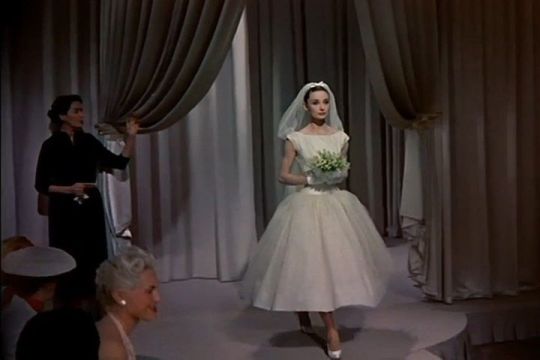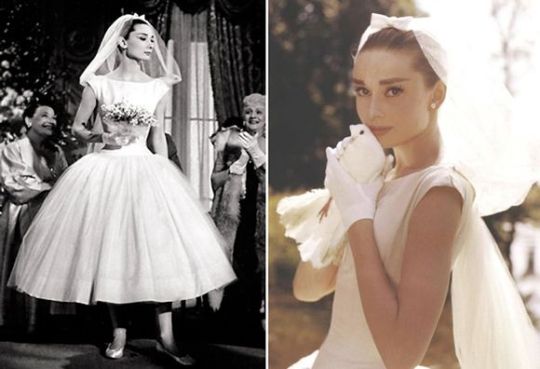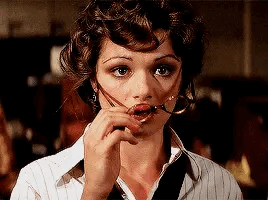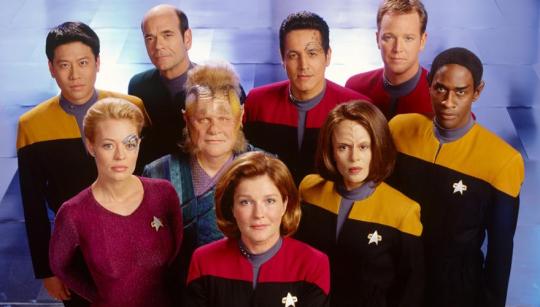#cressida jayoungr
Text
cressida-jayoungr replied to this post:
Wait, what's this about squirrels? That's one I haven't run across!
It's one of the many factoids from Tolkien's essay on Númenor in The Nature of Middle-earth! He talks about gender and relationships with animals there:
they [Númenórean women] were generally nearer to men than is the case with most races in stature and strength, and were agile and fleet of foot in youth. Their great delight was in dancing (in which many men also took part) at feasts or in leisure time ... But nearly all women could ride horses, treating them honourably, and housing them more nobly than any other of their domestic animals. The stables of a great man were often as large and as fair to look upon as his own house. Both men and women rode horses for pleasure ... and in ceremony of state both men and women of rank, even queens, would ride, on horseback amid their escorts or retinues ... The Númenóreans trained their horses to hear and understand calls (by voice or whistling) from great distances; and also, where there was great love between men or women and their favorite steeds, they could (or so it is said in ancient tales) summon them at need by their thought alone.
So it was also with their dogs. For the Númenóreans kept dogs, especially in the country, partly by ancestral tradition, since they had few useful purposes any longer ... It was men rather than women who had a liking to keep dogs as "friends". Women loved more the wild (or "unowned") birds and beasts, and they were especially fond of squirrels, of which there were great numbers in the wooded country.
...The woods of Númenor abounded in squirrels, mostly red, but some dark brown or black. These were all unafraid, and readily tamed. The women of Númenor were specially fond of them. Often they would live in trees near a homestead, and would come when invited into the house.
(NOME 325-326, 335-6)
Conclusion: a) Númenóreans were, as a people, significantly larger than other humans, b) Númenórean women were more similar in size and strength to the men of their people than is usual among humans, and c) these gigantic women liked to befriend normal squirrels.
#just envisioning 6'9" númenórean women setting eyes on random squirrels: FRIEND!!!!!#cressida jayoungr#respuestas#nature of middle earth#legendarium blogging#númenórë#team dúnedain#long post
99 notes
·
View notes
Photo


One Dress a Day Challenge- Part Three!
June: Weddings
Funny Face- Audrey Hepburn as Jo Stockton
Even though Jo is only modeling the dress, and not actually getting married, there was no way I wasn’t going to include this dress! It is one of the most beautifully simple wedding dresses I have ever seen. *cut to me gushing about how much I love 1950′s high fashion again*
Audrey Hepburn was obviously incredibly slender, but this dress gives her so many curves with that massive tea-length skirt! I love how voluminous it is, and of course it looks incredible when she is dancing with Fred Astaire.

The boatneck neckline is also really flattering on Audrey, and that hooded veil is fantastic! I love the little bow on the top. You can read a post by @cressida-jayoungr here about how this dress inspired another wedding dress decades later!
26 notes
·
View notes
Text
Rules: List five comfort characters & tag five people
I was tagged by @cressida-jayoungr thank you!
1. Emma Peel and John Steed (The Avengers)
These two come as a package deal. My Mum introduced me to them at a young age, so they almost feel like parental figures to me!

2. Lara Croft (Tomb Raider)
She’s a menace and I love her.

3. Evelyn Carnahan (The Mummy)
She is a librarian!

4. Connor (Detroit: Become Human)
His journey towards finding his humanity, (or not, depending on the choices you make in the game!), is so interesting to me.

5, The entire cast of Star Trek: Voyager (except Neelix!)
Is this cheating? Probably. But they all feel like old friends!
(Sorry to Neelix fans, but I find him extremely irritating!)

Tagging anyone who wants to do it. Tag me and let me see your choices!
10 notes
·
View notes
Text
I've been tagged!
Thanks, @cressida-jayoungr!
Last song: Anthony Head singing "Sweet Transvestite." Rocky Horror is a complex subject. For my generation it was a rare chance to see, and to be, characters who were gleefully outside society's accepted bounds of sexuality and gender. I understand and respect the reasons it is considered problematic by a lot of people, especially younger queer folks who have never been as starved for representation and vocabulary.
youtube
Last movie: His Girl Friday. Sometimes I just need a dose of incredibly fast, sharp dialogue.
Currently watching: I haven't been watching much TV. There are several things I want to get around to, like Good Omens s2. I have been watching Leverage for the nth time; it's TV comfort food for me.
Currently reading: Garden of Sunset, a mystery set in early-sound-era Hollywood. I've just started, but so far so good.
Currently craving: Hmm. Something involving mushrooms, I think. pasta, maybe.
Last thing I researched: Some of the obscurer corners of the Cthulhu mythos, for a possible future game. Also homemade Christmas ornaments and summer-appropriate Christmassy snacks. Yes, these are all connected.
Tagging: anybody who would like to join in!
2 notes
·
View notes
Text
@cressida-jayoungr replied to your post:
What do you say to those who insist that Shakespeare should not be read, only watched in performance? (I'm ambivalent, but can see their point.)
I’ve heard this too, by my own grad school professor, no less, who specialized in Shakespeare. I’ve always found it to be a specious and even bad faith argument, particularly by those who should know better.
For one thing, Shakespeare’s plays have a long history in print, mostly bootlegged quartos and octavo booklets sold to audiences who most certainly saw the play on stage (in fact, that’s why they bothered to bootleg it in the first place). We assume Elizabethans have the same attitude towards play scripts as we do toward screenplays (i.e. just a plan, meant to be discarded), and indeed, few scripts survive today. But the deeper truth is that play scripts (the popular ones, at least) did get bootlegged and printed and published, and Elizabethans bought and read them, even making collections out of individual quartos and folios. Not to mention they were very carefully guarded by theater companies from rival troupes who would try to steal the scripts and stage their own version for profit.
That’s because a stage performance at its essence is an interpretation of the original script. Even with the author right there bringing their vision to life, it’s still just an interpretation, and of course the collaborative nature of theater makes each staging a fundamentally unique one. We are, I think, confused by film, which is a different medium altogether. Destroy a screenplay, and the movie will live on so long as copies can be made and had. Destroy a play script, the entire play is lost (unless actors who remember the lines can commit it newly to the page).
In the context of literature class, what you’d want as an English teacher is for the students to arrive at their own understanding and interpretation of the text. That can’t happen if you just make the kids watch the film adaptation (out of dozens at that!) and call it a day. This is English class, not Film Studies. You do a disservice both to the art of literature AND film to confuse the two. Also, Zeffirelli’s, Baz Lurhmann’s, Polanski’s, etc. take on Shakespeare, no matter how competent or good, ultimately doesn’t matter—what matters is what the student takes from the original Shakespeare. And that can’t happen if you don’t expose the students to the words on the page first.
But true, play script dialogue often does not easily read well on the page than on the stage; it is meant to be spoken, after all. The only other solution would be simply to delegate the teaching of Shakespeare to drama teachers, not English ones (who are not even trained to teach Shakespeare or any other playwright as performance anyway—and I don’t think they should). That would at least make sense with the claims these people are making—they’re dramas, so the drama teachers should teach them.
But let’s not kid ourselves: If we do that, the average American schoolchild will never learn or even encounter Shakespeare. Modern American theater is economically elitist; the lack of government funding and subsidies had gentrified it to oblivion. Drama is also an elective, not a core subject; the first thing the public school system does to save pennies is precisely to cut the drama department. It would become supremely easy to avoid Shakespeare. Not even the most rabid of anti-art conservatives would want that (they favor a superficial “name-drop” kind of education), and even the ones who despise Shakespeare (all of them) know they will absolutely not get away with not teaching him. So it all comes back to the English teachers, and now even they are not really teaching him.
One more thing. To me, drama is literature—hell, it’s nothing but words, words, words—so it’s completely appropriate for English teachers to teach plays, anyway. In my experience the best plays tend to read well on the page too. In the case of Shakespeare, as a playwright he was very wordy, even within the context of his own time. He even disliked (or at least was extremely lazy) to write stage directions apart from the dialogue, unlike his contemporaries—he always often just had characters announce what they are doing or who is coming, etc., writing the directions in the lines. He was also at heart a poet; a few of his plays can be definitely be viewed along the lines of narrative poetry. Romeo and Juliet is particularly so musical in its verse it sings. Harold Bloom liked to call Hamlet a “poem unlimited”—apparently that was one of the theater genres at the time. Elizabethans fully accepted drama as poetry too—just not like the ~purer and ~superior non-narrative poetry. Play poets were de facto not real poets.
So tl;dr. Read Shakespeare. With notes, whatever, but read him and make the students read him. People of his time did—hell, Shakespeare probably owned copies of his plays in print, let’s be real. Above all, don’t use film adaptations or even stage adaptations to “teach” the play. It’s in the very name: adaptations, not the original. Most of them deviate from the plot and characters, sometimes wildly, so you can’t even use them for a pop quiz on the plot. They are also usually the chief cause of the worst excesses of fanon headcanons and misconceptions. You would not use the Harry Potter films as educational crutches to teach the Harry Potter books. Why should Shakespeare be any different?
#cressida-jayoungr#reply#william shakespeare#shakespeare#english lit#english literature#theater#i wrote you an essay pardons for that#but the topic requires it#english major#cristina is an english major#macbeth#romeo and juliet#hamlet#and i didn’t even touch on the first folio#the one thing his colleagues did to make sure he wasn’t forgotten#is publish shakespeare’s plays in PRINT#because they knew he was being forgotten#anyway thanks cressida-jayoungr#it’s a topic that needs to be explored
8 notes
·
View notes
Text
cressida-jayoungr replied to this post:
Okay, I believe you're referring to my comment about how I can forgive the movie casting people for going for some visual variety. I didn't actually say "people could never tell the characters apart if they didn't have different hair colors"--that's an uncharitable exaggeration. But there are a LOT of characters in the movies, and people who aren't familiar with the books do sometimes have trouble keeping them straight. (cont.)
I wasn't referring to your comment.
I don't mean to unload all my frustration with this onto you specifically, but if I had meant to respond to a specific comment in isolation, I would have done so. When I talk about trends I find irritating or worse in larger conversations, it's because it's something I've seen over and over and over again, and the annoyance has accumulated to the point that I feel like addressing it. These are never about one person's post, but there is virtually always someone who assumes it's about them, in isolation from all other discussion. It's not. Most of the time I don't even know them.
Also, in the post you're responding to, I even said that I thought the same argument had been used by the actual filmmakers, so it was definitely not referring to something just one person had said.
And I guess my post was unclear about what I was trying to say and why I keep coming back to this. If a big-budget film (or film series) like LOTR with a massive cast overwhelmingly comprised of light-skinned white actors has to work to visibly differentiate its characters, that's on them. They looked at a multiracial society based on ancient Egypt and the Roman empires, one of the only places with dark-skinned characters among the forces of good in anything Tolkien ever wrote, and still restricted the roles available to POC to orcs and soldiers of Sauron. I have no sympathy whatsoever for any difficulties they may have had in distinguishing their actors and I have no patience for it as an excuse for anything.
#cressida jayoungr#respuestas#legendarium blogging#legendarium fanwank#long post#ondonórë blogging#pj critical#anghraine rants
23 notes
·
View notes
Text
cressida-jayoungr replied to this post:
To be fair, Boromir can be pretty grating. I remember muttering, “Shut up, Boromir” almost every time he opened his mouth in FotR. Sean Bean did a great job of making him more likeable.
ngl, my kneejerk response was "it's pretty rich for a bunch of First Age characters—especially Elves—to consider anyone grating, much less a mortal Man less than halfway through his lifespan and in a desperate situation."
More seriously, though, I've found Boromir much more sympathetic on re-reads, because—
1) We have a much better sense of the pressures on him once we actually see Gondor and find out more about it and the situation Boromir would be in as the head of a military force defending literally millions of people (directly; even more indirectly) from Mordor and its allies, and which has done so for multiple generations. These are things which most people at the Council already know.
2) We also now realize where he was actually right, like when he sticks up for Rohan when the others are speculating about them being in league with Sauron. Yeah, he's not particularly smooth about it, but it would actually be pretty shitty to shut up about his people's most faithful ally when he's in a position to know better than the others there. Or when he sticks up for the hobbits before Caradhras! Pippin describes him as "lordly but kindly" for a reason.
And at the Council in particular, nearly everyone seems constitutionally opposed to acknowledging any of Gondor's sacrifices or merits without some jab—Galdor concedes that Gondor is the main obstacle to Sauron marching to the Sea but of course phrases it as "waning might." Elrond openly attributes their diminishment to racial mixing, to Boromir's face (though it's very debatable as a reason for Númenórean decline even according to Tolkien). Gandalf complains about Denethor not being welcoming enough despite giving him access to the archives. Even Bilbo goes after Boromir for doubting Aragorn's claim to the kingship (a claim which Gondor formally rejected 1000 years earlier, at a time when Boromir has barely met Aragorn).
These may not be heinous crimes, but he has plenty of cause for indignation IMO and there's this weird double standard, where others can go on about, you know, Gondorian racial inferiority or whatever and remain beloved, but Boromir is like "actually the Rohirrim would never give horses to Mordor" and it's an indictment of his character.
WRT Sean Bean, I hear that a lot, but I think that while there are some attempts to soften him, it's constantly undercut by the extremely unsubtle and intrusive foreshadowing of his fall to the Ring (and then making "accepting Aragorn" as the signifier of his salvation rather than his consistent love for his people). Bean does a good job as an actor, but the structure of film Boromir's arc (as well as being woefully miscast physically) works less well than book Boromir for me.
#cressida jayoungr#respuestas#legendarium blogging#legendarium fanwank#anghraine rants#boromir#pj critical#long post#húrinionath#ondonórë blogging
73 notes
·
View notes
Text
cressida-jayoungr replied to this post:
Bride and Prejudice probably contributed to it as well, but his name actually IS Will (or William) in that version.
It may have, but I actually doubt it. I was super into Austen fandom around 2004-5, and as far as I recall, the Will/William thing was already very pervasive fanon by the time B&P came out—especially in modern adaptations or modern-set fic, but in period-set ones, too. I'm not sure B&P ever had much influence on P&P fandom tropes, though people liked it, and just about every modern-set adaptation makes the same choice.
11 notes
·
View notes
Text
cressida-jayoungr replied to this post:
I never read it as Edmund *disowning* his actual sisters, rather feeling that they had deserted him/the family.
Not formally, but I mean ... he says they're not his sisters any more, whatever his motives for doing so.
With regard to his rationale, we don't really know what it is—it's an emotional outburst, not something he's necessarily thought through. He feels like Maria and Julia are no longer his sisters in a meaningful sense because they ran off with a couple of shitty men (and that Fanny is his sister, lol). But the fact that he feels that way is not solely on Maria and Julia. Edmund responds this way because of who he is as a person.
#even if say lydia had been older in pride and prejudice i don't think elizabeth or jane would ever have felt like writing her off this way#cressida jayoungr#respuestas#austen blogging#austen fanwank#edmund bertram critical#this is not an edmund bertram appreciation blog
10 notes
·
View notes
Text
cressida-jayoungr replied to this post:
Can't you still have a favorite without being attracted to them, though?
Yes, that's the point.
I was responding to posts about male Austen characters that assume all Austen fans are interested in men romantically, and that fans' evaluations of her male characters are (or should be) based on what is appealing or valuable in actual male romantic partners. It's deeply tiring tbh; I know the fandom is extremely heteronormative, but I don't like being continually reminded of it.
#this is actually why i mainly confine myself to my own space when it comes to austen#i burned out on the heteronormativity long ago but i still find it deeply irritating#cressida jayoungr#respuestas#austen blogging#austen fanwank#a treeful of monkeys on nitrous oxide
14 notes
·
View notes
Text
cressida-jayoungr replied to this post:
My headcanon is the Stewards are descended from Elros through the younger daughter of some king who had more than one. So they wouldn't have a claim under either set of inheritance rules. (I think at one point, I pegged a likely candidate, but I forget now who it was. I don't even remember whether it was a king of Numenor or of Gondor.)
I think descent through a daughter (or multiple daughters, given the enormous length of time and limited population) is definitely the most natural explanation. Descent through one or more princesses could definitely convey the kind of Elrosian prestige the family seems to have had even before the Ruling Stewardship, without transmitting a claim to the throne with it.
It also adds an interesting dimension to Pelendur's part in barring descendants through the female line from the throne, if he himself is also a descendant in the female line. And young Boromir's frustration that their family is barred from the throne isn't that hard to understand, but it's still easier with the realization that they haven't just ruled the country for nearly 1000 years, but are also descendants of Elendil and Elros, anyway.
My personal headcanon conflates the draft where the Stewards are descendants of a Sindarin-speaking Faithful family back on Númenor, and the repeated references to their royal origin. I also felt the Faithful-royal origin version would have to split off early in the royal family's history (well before the house of Andúnië did, to keep the Stewards' ancestors lower in the succession), so I went with Princess Tindómiel, daughter of Elros, whom I've always been intrigued by.
I imagined she and her husband founded a powerful noble house that later ended up closely allied with their still greater neighbors in Andúnië. One of Tindómiel's distant heirs managed to escape Númenor, fought on Isildur's behalf, and was given Emyn Arnen. Between then and Húrin of Emyn Arnen's time, it seems likely enough that a princess or two of the line of Anárion could have intermarried with a family like that, explaining the additional references to them being descended from Anárion without being formally of the line of Elendil.
So they end up with a lot of prestige through these women (and then, after Mardil's time, through Rían and Morwen), and their kinship to King Minardil is near enough for him to acknowledge it, but they have no legal basis for a royal claim.
#this is actually the much simplified version of my headcanon#i am what i am!#cressida jayoungr#respuestas#legendarium blogging#long post#anghraine's headcanon#anghraine babbles#húrinionath#tindómiel#pelendur
13 notes
·
View notes
Text
cressida-jayoungr replied to this post:
I am also skeptical of the degree to which it was honestly believed to be a truth, as opposed to a literary device. People did understand the concept of tropes, even if they didn't phrase it that way.
Hmm, that’s true in a general sense, but I think there’s considerable evidence that people (esp in certain places and periods) tend to link moral character and physical appearance outside the realm of fiction. I mean, people do that now but the idea of a link between beauty and the divine or the more amorphously good was well known philosophically outside the bounds of fiction and is easy to fall into without being on guard against it.
I do think that people’s responses to fictional tropes are mediated by the understanding that it’s fiction, and so the influence of fiction and reality on each other can be very indirect and unpredictable (and indeed, sometimes unknowable without perfect knowledge of other people’s psyches!). That’s why I’m solidly against the dogmatic and simplistic “fiction = reality” line of argument and most of the moralizing around it. But I’m also wary of positively assuming a lack of connection when we don’t know that, either.
#cressida jayoungr#respuestas#general fanwank#nineteenth century blogging#eighteenth century blogging#renaissance blogging#etc lol
8 notes
·
View notes
Text
heckofabecca replied to this post:
ummm I love it?!?!?
Thank you! I don't often write an Éomer POV, so I appreciate hearing it :)
rain-sleet-snow said:
I love this so much, especially Éomer's memory of the warrior from Harad (I think?) and the idea of Éomer and Faramir as specifically allies in their own right - heirs of Cirion and Eorl - separate from their links to Aragorn!
Thanks! Yes, the warrior was from Harad. Until I wrote this, I don't think I'd actually thought through Faramir and Éomer as the heirs of Cirion and Eorl and independently navigating that dynamic, but I am really fond of the idea.
cressida-jayoungr said:
I like this a lot! So this is the reason for E&F's longish engagement, I guess? (Also, it would be funny to see the reverse conversation when Eomer wants to marry Lothiriel.)
Thank you. I imagine Faramir and Éowyn's engagement period is pretty standard in Gondor, actually, esp for people of their rank, but I suspect Éomer would have welcomed it.
And yes, while I don't take a very romantic view on Éomer/Lothíriel, I imagine Éomer being fairly pleased at the prospect of his betrothal to Lothíriel, and Faramir quietly striking up a chat with him as Éomer is passing through Ithilien with Aragorn or something. But I definitely meant to foreshadow that a flipped conversation lies in Éomer's future, lol.
#heckofabecca#rain sleet snow#cressida jayoungr#respuestas#legendarium blogging#nice things people say to me
3 notes
·
View notes
Text
cressida-jayoungr replied to this post:
Wait, why would they want beards? I always assumed Tolkien saw natural beardlessness as a good thing, because beards were out of fashion for most of his younger days.
This was a joke post, but the assumption is that they would want to differentiate themselves from Elves in personal aesthetics as well as other things.
(I don't think beardlessness is all that morally loaded in Tolkien, tbh, though he may have preferred it aesthetically for personal reasons. The bearded Elves aren't morally suspect or anything like that and beardless humans would include a very wide variety of moralities. Apart from hobbits, it's mostly just a marker of Elvish ancestry.)
7 notes
·
View notes
Text
cressida-jayoungr replied to this post:
Drives me up the friggin' wall that line does, and it's all Andrew Davies' fault.
You 1000% have my sword!
#'it's all andrew davies' fault' is music to my ears :D#cressida jayoungr#respuestas#austen blogging#austen fanwank#andrew davies critical
7 notes
·
View notes
Text
cressida-jayoungr replied to this post:
What do you think of Will Darcy from Bride and Prejudice? He is actually the version that most closely matches my own envisioning of the character from the book, allowing of course for the modern resetting. Interestingly enough, he doesn't seem particularly popular with the crowd who were drawn in by the Colin Firth version, though I wouldn't say he's *un*popular either.
I don't like him at all, I'm afraid! It's partly his actor, who I find extremely meh where Darcy has a lot of force of personality, and partly because the Will/Lalita set-up just doesn't have the right vibes for me and is unfortunately the weak point of the adaptation IMO.
I think Bride and Prejudice is pretty broadly popular, though—I don't think I've seen liking it (or liking their Darcy) split along 1995 vs 2005 fan lines.
#cressida jayoungr#respuestas#austen blogging#austen fanwank#lady anne blogging#bride and prejudice critical#not a tag i often use but martin henderson(iirc) ... /sigh
3 notes
·
View notes